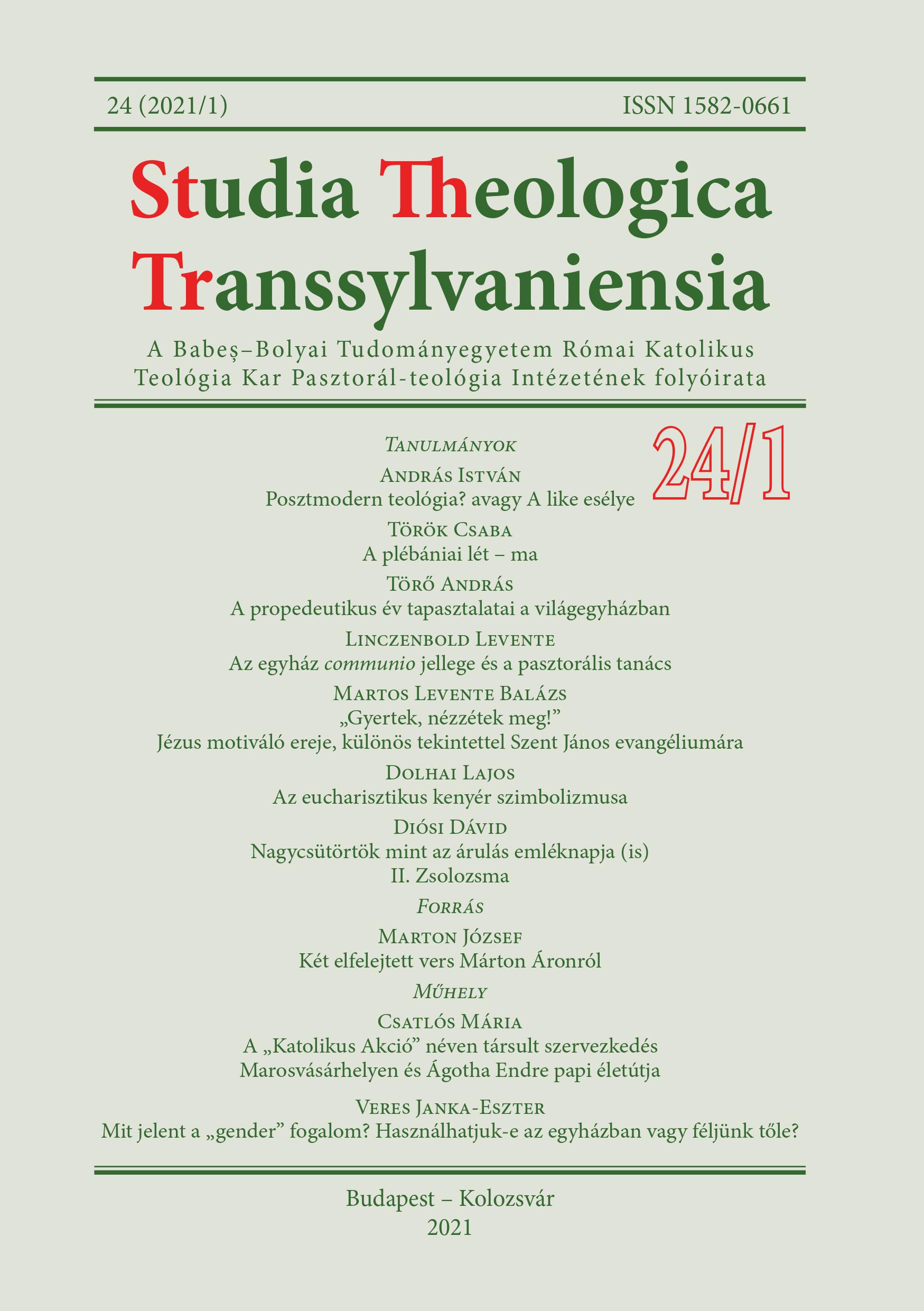A "Katolikus Akció" néven társult szervezkedés Marosvásárhelyen és Ágotha Endre papi életútja
DOI:
https://doi.org/10.52258/stthtr.2021.1.09Kulcsszavak:
excommunicatus vitandus, penitence, secession attempt, recursion, illegal leadership, peace-circular letter, peace priest, excommunication, ordinarius substituus, status meeting, Ágotha EndreAbsztrakt
With the available archival resources and through exploring the life, work and political actions of Endre Ágotha, the dean and parish priest of Nyárádselye I trace the unfolding and failing of the schismatic catholic peace movement legitimated in Marosvásárhely in the period 1950-1956. The state backed "Catholic Action" did not succeed in severing the Catholic Church in Romania from Rome by settling the "pending cases" between the church and the state and only a small portion of the clergy joined the movement, yet it has made significant moral damages by dividing the believers and the clergy. The Holy See condemned the movement and it's key figure Endre Ágotha has brought upon himself the harshest punishment of the Catholic Church: excommunicates vitandus. He received absolution only on his deathbed.
Downloads
Megjelent
Hogyan kell idézni
Folyóirat szám
Rovat
License
Copyright (c) 2021 Mária Csatlós

This work is licensed under a Creative Commons Attribution 4.0 International License.






